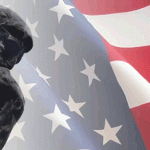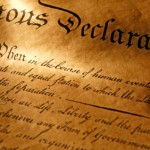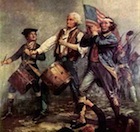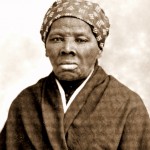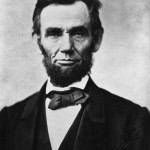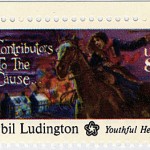By Kyle Roberts MODERN INTERPRETATIONS OF THE COMMERCE CLAUSE The major modern interpretations of the meaning behind the commerce clause come from two professors who wrote fifty eight and seventy four years ago, respectively. The first was Walton Hamilton who in 1937 wrote “The Power to Govern; The Constitution - Then and Now.” He … [Read more...]
Congressional Carte Blanche: Commerce Clause Pt. 1
By Kyle Roberts The Commerce Clause has morphed into a congressional carte blanche for “constitutional” legislation. As a result of improper constitutional interpretation and verbal legal maneuvering, the original understanding of the clause and its operation has been totally lost. I have written elsewhere that the proper source for … [Read more...]
The Limits of Specialization
By Oliver DeMille “A human being should be able to change a diaper, plan an invasion, butcher a hog, conn a ship, design a building, write a sonnet, balance accounts, build a wall, set a bone, comfort the dying, take orders, give orders, cooperate, act alone, solve equations, analyze a new problem, pitch manure, program a computer, cook a tasty … [Read more...]
Equality & the Declaration of Independence
By Kyle Roberts “All men are created equal” is perhaps the least understood and most abused phrase in American Independence literature. As with most other historical concepts - stripped of original context - it has come to be the philosophical authority for virtually every social doctrine, special interest persuasion, international … [Read more...]
Pull Up a Chair
By Oliver DeMille The Big Bargain Elites make a bargain with the middle class. This bargain determines how power, influence and wealth will be distributed in society. In each new generation, elites and the middle class review the current bargain and make alterations—sometimes minor and in other generations more drastic. If things get bad for … [Read more...]
The Underground Railroad
By Chris Brady If leadership is about attacking the status quo and railing against injustice, then the unsung and often unnamed heroes of what came to be known as the "Underground Railroad" are a great example. A loose network of sorts, committed to aiding escaped slaves to reach freedom, existed in the North American colonies at least as … [Read more...]
That Which We Call A Rose
By David Grant "How many legs does a dog have if you call the tail a leg? Four. Calling a tail a leg, doesn’t make it a leg.” — Abraham Lincoln But political rhetoric would have you believe that it is not a tail but a leg. It’s time to apply the potent laxative of logic to constipated political spin. Your life (freedom) depends on … [Read more...]
Culture Versus Institutions
By Oliver DeMille Free citizens are innovative, independent and giving. When these characteristics wane in a society, freedom decreases. When these values are bolstered, freedom grows. Because they are so important in free nations, institutions attempt to produce and market them. But the nature of innovation, independence and giving … [Read more...]
Food Safety At Any Cost?
By Bryan Hyde Sitting down to our daily meals is such a commonplace occurrence for most of us that we scarcely give it a second thought. But the safety of the food we eat is becoming the focal point of an increasingly intense tug of war between federal regulators and food growers and producers at every level—right down to our own … [Read more...]
An Unsung Heroine
By Chris Brady Leaders lead because it is the right thing to do, because it is "in them," and because they were born for it. Sometimes, it even gets recognized. For this reason, I particularly like it when historians dig up lost stories of selfless sacrifice by unsung leaders. This exerpt from Alan Axelrod is interesting, partly … [Read more...]
